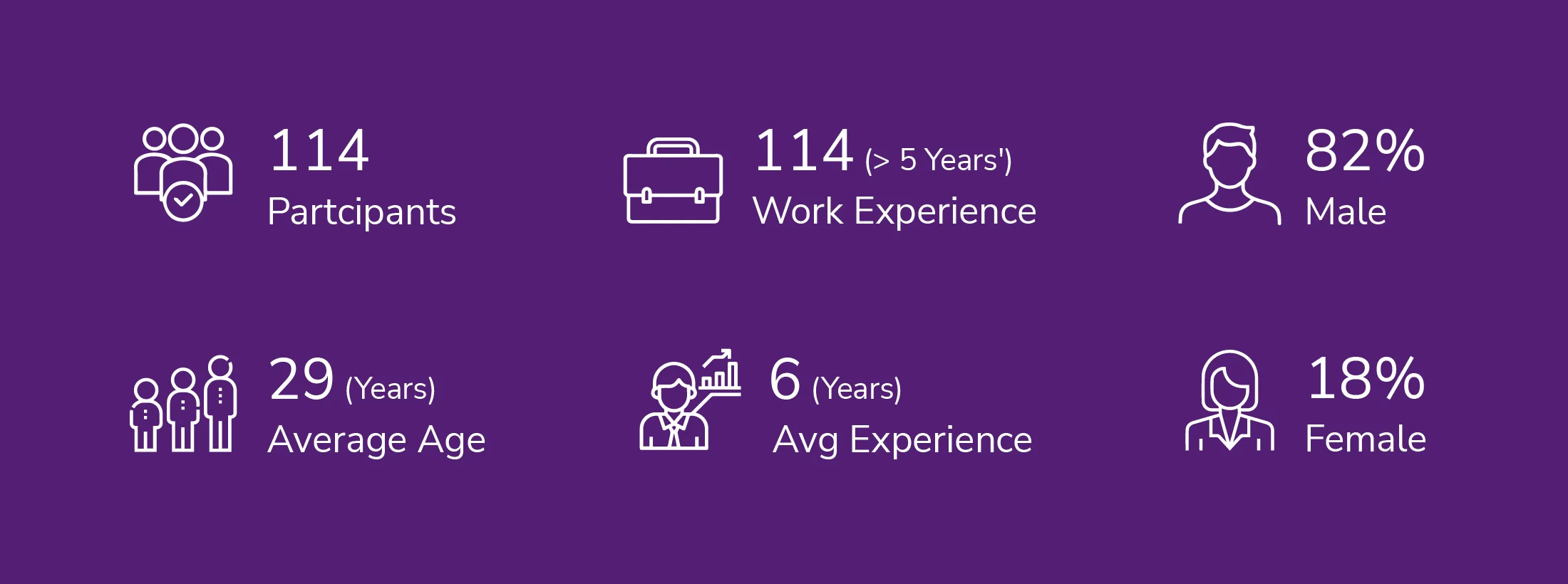Find the programme that meets your requirements and aspirations.
Apply now-
 Admissions
Admissions
closed -
Restart
initiative for women with a career break -
 Programme Starts
Programme Starts
December 2026 -
 Download Brochure
Download Brochure
-
Enquire Now
About Post Graduate Programme in Management (PGPM)
The SPJIMR PGPM Post Graduate Programme in Management is an 18-month AICTE-approved, full-time, leadership-focused programme for experienced professionals who aspire to lead teams, innovate with purpose, and drive meaningful change in complex business environments. PGPM prepares our participants to lead in an AI-augmented world. Grounded in strong business fundamentals, they learn AI technologies and tools to leverage them strategically for redesigning processes and making data-driven decisions through technology-enabled transformation.
SPJIMR’s PGPM is ranked #74 globally in the Financial Times (FT) Global MBA 2026 Ranking, making SPJIMR the highest new entrant in this year’s MBA ranking. The FT ranking assesses business schools across multiple metrics, including salary outcomes, value for money, career progression, gender diversity, internationalisation, research, and commitment to sustainability. SPJIMR is also ranked #29 globally for value for money and #39 globally for careers services.
PGPM participants receive an AICTE-approved Post Graduate Diploma in Management (Business Administration) upon completion of the programme.
Objective
Competency goalsPGPM aims to leverage its participants’ professional experience and domain expertise with the needed skills to evolve as the business leaders of tomorrow. The programme objective is to develop functional specialists into value-based leaders with strong functional and general management capabilities. The programme objective is aligned with the following competency goals:
Students will be:
- Responsible and stakeholder-sensitive leaders
- Future-ready leaders
- Innovative and change agents
- Able to make reasoned decisions
- Clear in thought and articulation
Key highlights
Location
PGPM is offered from the SPJIMR campus located in the heart of Mumbai, the financial and cultural hub of India. This enables a high-quality industry integration and offers an immersive learning experience with maximum exposure to the city’s dynamic commercial and economic activity.
Placements
The PGPM 2024-25 graduating batch recorded an impressive increase in average salary, reaching ₹24.40 LPA. The average CTC of the top 25% is ₹33.40 L, and that of the top 50% is ₹29.30 L. The average increase over incoming pay is 119%. These results highlight the exceptional calibre of our students, the dedication and expertise of our faculty, and the unwavering trust of our industry partners. It reaffirms SPJIMR’s position as a premier institution committed to producing industry-ready professionals.
Flexibility
The PGPM programme addresses the unique needs of accomplished and ambitious professionals/executives seeking career acceleration or transition. The programme offers a thoughtfully curated learning journey through focussed phases. PGPM provides its participants with a strong foundation in core management fundamentals in the first semester. In the second semester, participants choose one major and two minor concentrations that will help them bridge from their past experiences to their future aspirations.
Innovative pedagogy
PGPM’s application -oriented pedagogy is designed to make its participants practice ready. It includes experiential learning with immersive experiences, simulations, live industry projects and case studies. In addition the diverse and extensive work experience of the participants facilitates effective peer learning with relevant cross-functional insights and helps build a lifelong peer-to-peer network.
Batch profile

Industry connect

SPJIMR’s legacy of over 40 years in management education offers a well-established industry network across diverse sectors and a 18000+ alumni network worldwide. PGPM leverages these robust networks to continuously augment its participants’ learning experience through various industry engagements such as expert guest-lecture series, live industry projects, alumni mentorship programmes, Course of Independent Study (CIS) and panel discussions.
Samavesh
Participants of the PGPM programme organise an annual industry-academia conclave Samavesh. The conclave brings together industry and academia to discuss contemporary business issues and address important challenges that the real business world is currently facing. Business leaders from various domains share their experiences with the faculty and participants on various innovations and current industry trends and discuss the evolving business landscape.
Participant experiences
PGPM is conducted at SPJIMR’s Mumbai campus. Being located in the country’s financial capital and cultural hub offers participants maximum exposure to the economic and financial activities. It also provides an immersive learning experience with easy access to quality industry engagements. In addition, the PGPM cohort offers a uniquely diverse classroom of experienced professional. This nurtures unparalleled cross-industry and cross-functional peer-to-peer learning and helps build strong professional network. PGPM’s holistic leadership development approach enables participants to transition into expansive roles in general management. PGPM participants share their growth journeys in these videos.
Connect with us
Admissions
Write to us
Download brochure
Enquire now
Enquire now
- post-graduate-programme-in-management-pgpm





